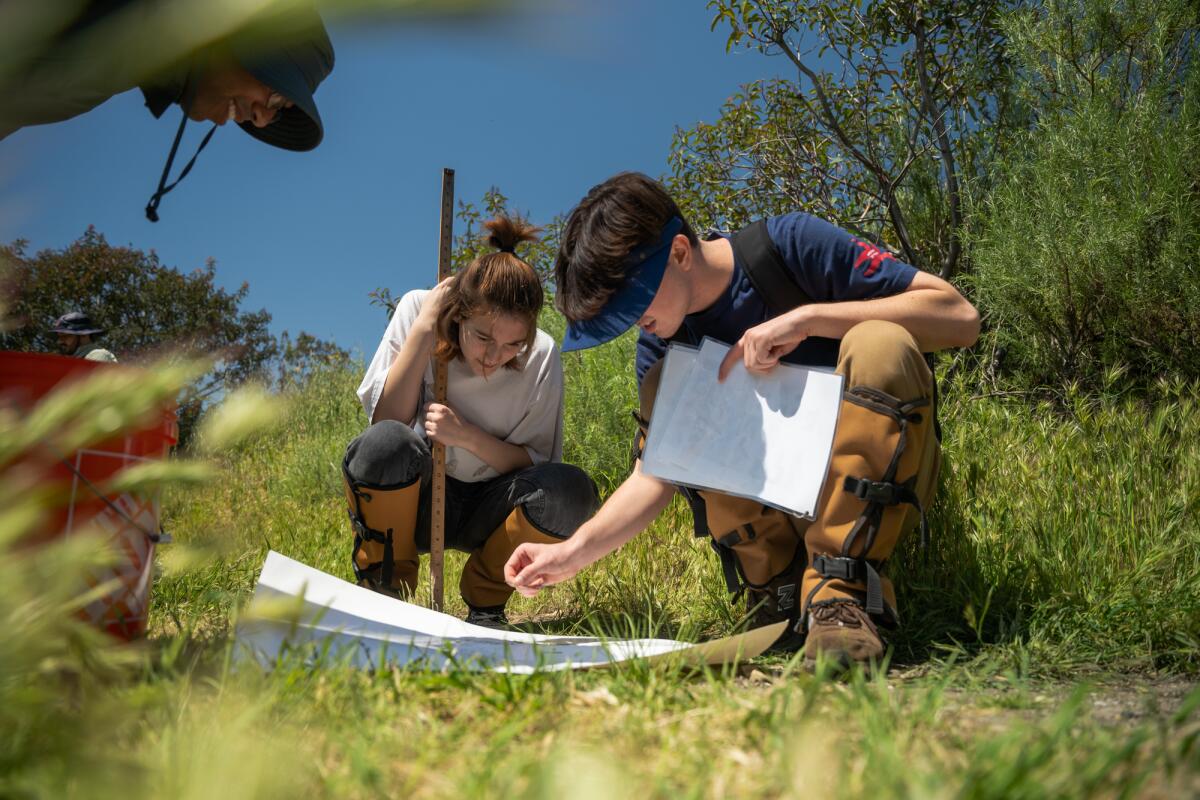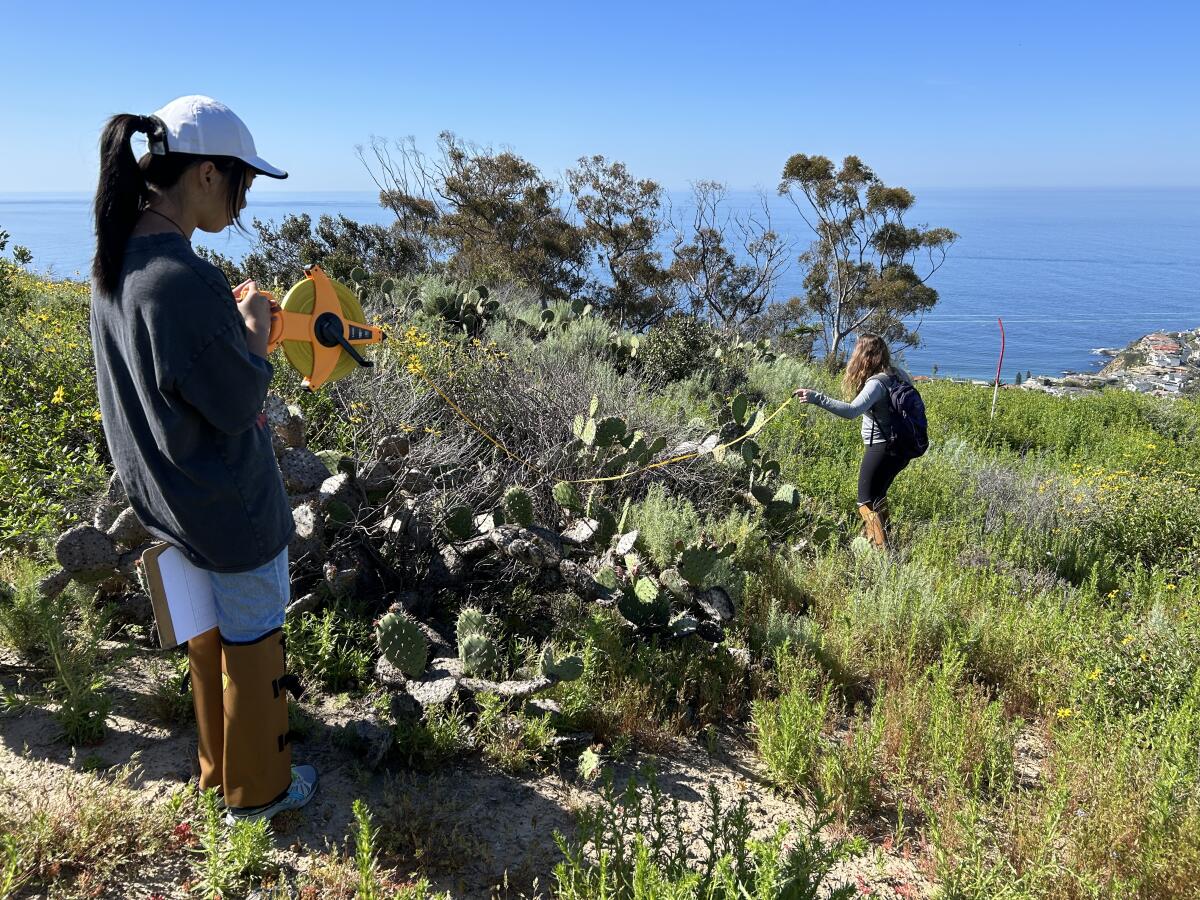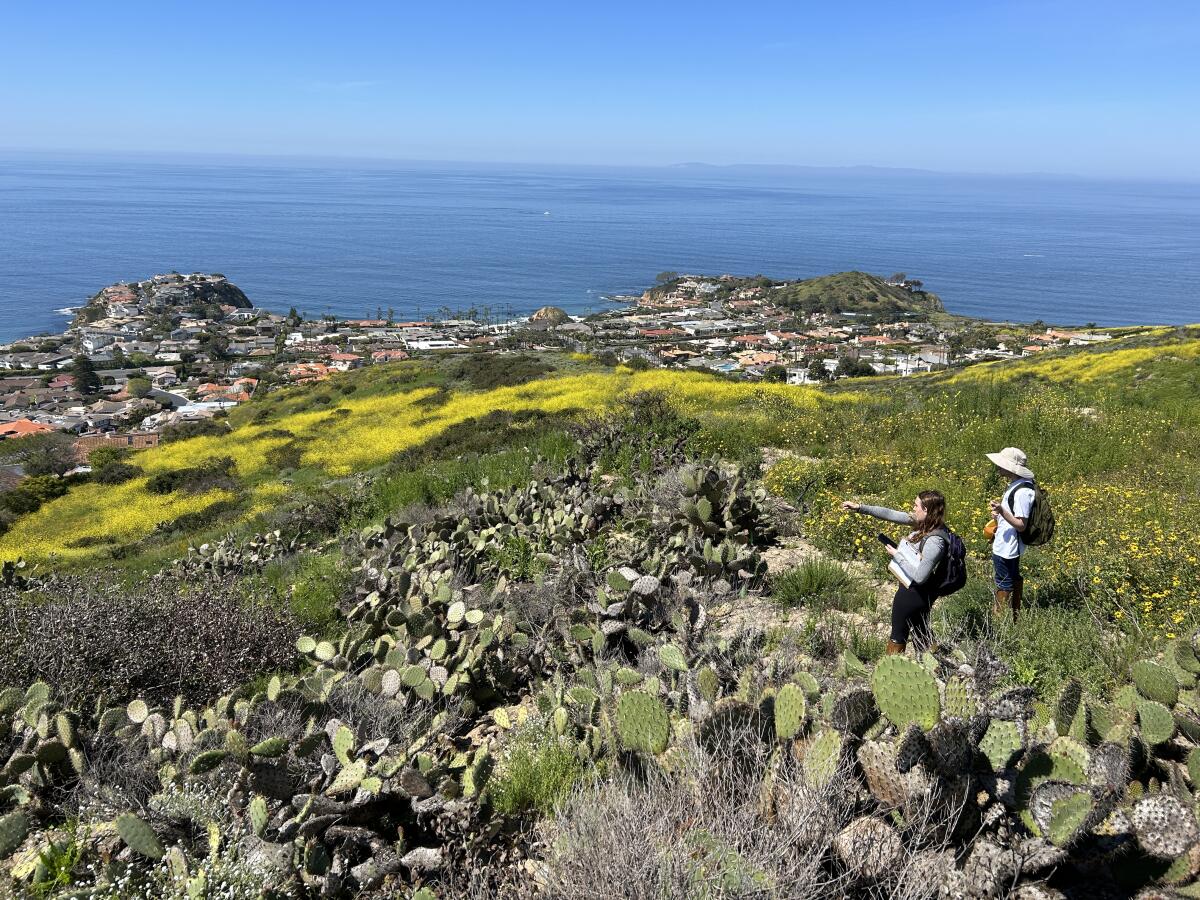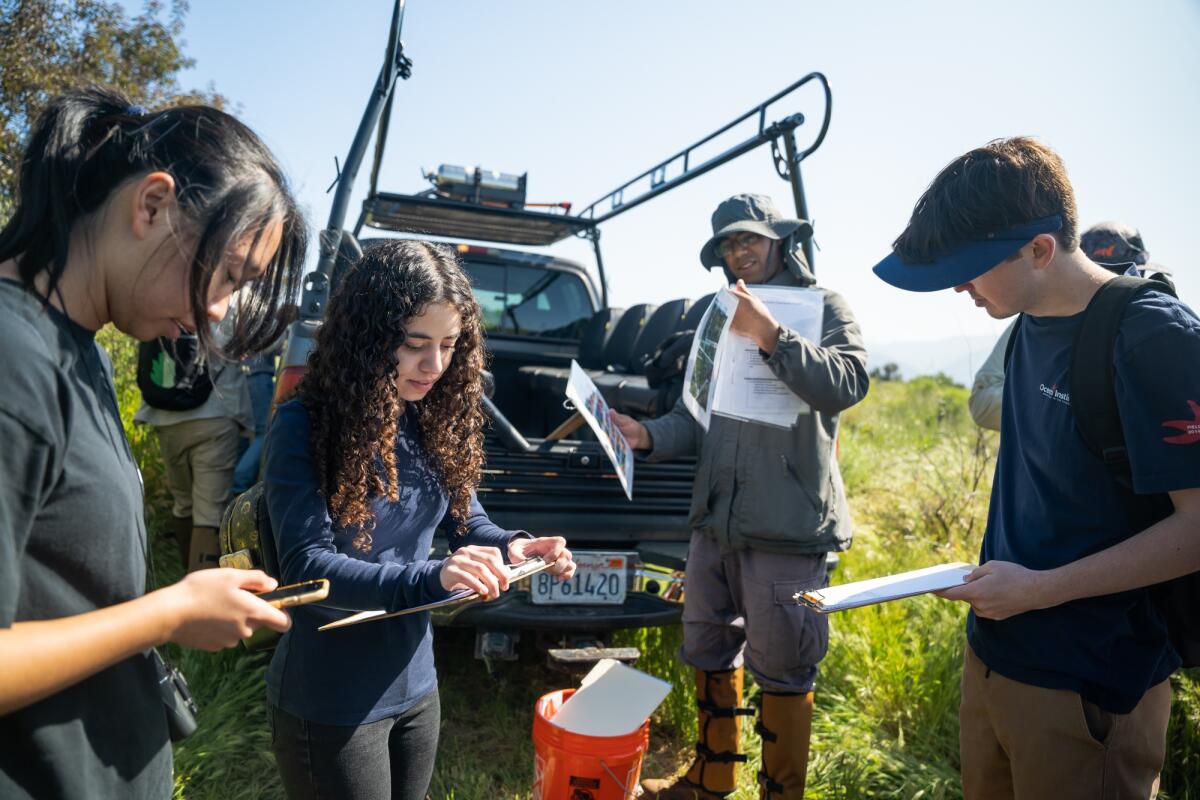O.C. high school students: Applications due Friday for yearlong fire ecology internship

The Irvine Ranch Conservancy, Crystal Cove Conservancy and Crystal Cove State Park are partnering for the third year to offer fire ecology internships for high school students, which leaders say has found its focus of research.
The internship spans the length of the school year and this year’s program is scheduled to begin in October. It started in 2020 as a largely virtual internship in light of the pandemic with a limited outdoor component.
Irvine Ranch Conservancy vice president and chief programs officer Nathan Gregory said that, at least on the Conservancy’s part, the idea was born out of acknowledgment of the conservancy’s own limitations.
“We’re a conservation organization. We’re responsible for about 30,000 acres, but what we’re not is an environmental educator. We do interpretive programs, outreach, but the question was ‘How do we raise awareness around this issue and how do we engage the next generation of conservationists and environmental leaders, especially when fire, like a lot of other challenges, will be made worse by climate change?’” Gregory said. “We had a relationship with the Crystal Cove Conservancy, and so we came together to figure out how we could solve that problem.”
Crystal Cove Conservancy Education Coordinator Georges Edouard said the internship had its genesis in that conversation.

“We continue to run the Fire Ecology Internship because fire is an ever-present problem in California and its effects are only going to worsen as climate change drives average temperatures up, we believe it is important to involve the next generation in preparing to contend with the challenges of today’s world,” Edouard said in a statement Tuesday.
Fire ecology is the study of the natural effects of fire on natural systems. Gregory described the focus of the student internships is thinking about how “such an important force impacts all of the things that we’re concerned about. And then, from a conservation side, the reason we’re interested in parsing is, as fire is changing in terms of its impacts on the landscape, how do we better understand that and manage it going forward?”
Students do data collection in the burn scars of different parts of Orange County. Gregory said the first year was experimental and loose in its outline, but organizers have found that providing greater guidance for students has been helpful in producing data sets that both conservancies hope to use in the future.
The focus of the program is on cactus habitats, namely with respect to how they affect the coastal cactus wren — a small bird only found in Southern California whose habitats are threatened by fire.

“[The coastal cactus wren] need mature cactus to breed and build their nests,” said Gregory. “Basically, we started looking at modeling a system, but are letting students make the decisions. What do they think are the most important aspects of the habitat? They can measure the changes. We’re providing a lot of structure and guidance because they’re new scientists, but we do encourage them to develop their own questions and interests around the topic.”
The Crystal Cove Conservancy largely runs the programs, though the Irvine Ranch Conservancy and state parks provides their experts for help and support during field research. It is funded with help from Edison International, California State Parks Foundation, Crystal Cove State Park and the Irvine Ranch Conservancy.
Edouard said the program sees around 40 applications annually. They’d only received 21 as of Tuesday, but he noted that the bulk of the applications tend to come in within the last two days. Applications are due Friday for consideration for the program. Interested readers can find the application and more details on the program at crystalcove.org/fire-ecology-high-school-internship.
“We think it’s important to educate the next generation of students at this critical juncture because there are so few opportunities to really step into the role of a researcher at their age,” Edouard said. “We want to give students the opportunity to participate in actual science experiments, so that they can experience what a real day-to-day can be in the role of an ecologist.”

All the latest on Orange County from Orange County.
Get our free TimesOC newsletter.
You may occasionally receive promotional content from the Daily Pilot.




